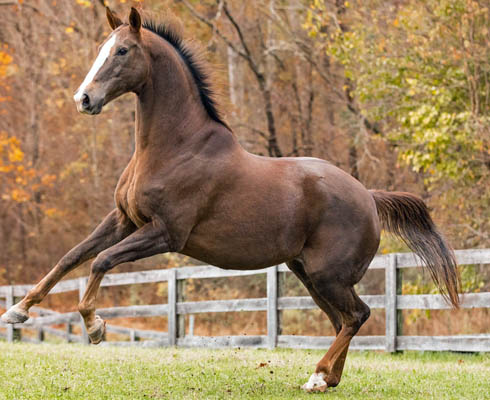So, You Think You Love Horses?
Some Reflections on the Nature of Horses and Man
Glossary of Equestrian Terms Words Beginning with V
Photo by Bethany Pastorial
-
Vaquero (Spanish word for cowherder)
[Equestrian Occupation] The word vaquero is used similarly to our English word cowboy. The American ranching culture was directly borrowed from the older ranching culture of Spanish America, something generally underappreciated.
-
Vault
[Horse Mounting Method] To vault a horse is to mount by jumping on its back from behind and from the ground. I have always wanted to do this, but I know that I would break every bone in my body, all 206 of them.
-
Vaulting
[Equestrian Sport] Vaulting is a ancient sport in which the rider preforms gymnastic routines on the back of a moving horse. The horse is often controlled by a second person holding a lunge line. Interestingly enough the 1920 Summer Olympics Games featured men's vaulting but thereafter in was dropped and it currently it is not a formal Olympic event. However, there are a number of other first rate competitions, including at the World Equestrian Games held every four years.
-
Vaulting Surcingle
[Equestrian Sport] A vaulting surcingle is a special surcingle designed for use in the sport of vaulting. It has a padded seat and handles and replaces a true saddle.
-
Vetrap
[Veterinary Medicine] Vetrap is an elastic, self adherent bandaging material that is truly great stuff. It will remain on the horse when the former bandaging methods could be counted on to fail. Duct tape over a dressing was not bad, but hellish to get off. Think what it would be like to wear a duck tape Halloween costume and you can understand why I say "great stuff" [Forgive my humor, but I could not help it. Having used duck tape with horses, it seemed an analogous allusion] Similar material is often used in humans after blood draws and is similarly effective. It is hypoallergenic with latex free.
-
Vetting (Pre-Purchase Veterinarian Exam)
[Horse Management] A vetting is often a contingency when a horse is purchased, particularly the more expensive ones. The purpose is to establish that the horse is sound and healthy.
-
Vices
[Horse Behavior] Vices are any undesirable, stereotypical and purposeless behavioral mannerism expressed by a given horse. They may be viewed as "bad habits," or as indications of stress or boredom in a horse confined in a stall. There also is a sense that vices are not dissimilar to human obsessive-compulsive disorders and many seem to respond to treatment with the medication Fluoxetine. However, management should also consist of allowing animals more grazing time and introducing more novelty into their environment. Like people I believe animals in their own way may need a sense of purpose. Inactivity may be as damaging to a horse as it is a person. Among the more common vices are: cribbing, wind sucking, weaving, head shaking and wood biting. The fear that the these behaviors can somehow infect horses around them is not supported by facts.
-
View
[Fox Chasing] Having a view is the modern goal of a fox chase, other than a nice day riding in beautiful country with good companionship. In former times the fox was considered vermin and the object of a fox hunt was to dispatch the fox. That is not true today. I see foxes and other wild animals often anyhow, but it is a special thrill to view one on horseback during a fox chase. In my experience foxes always get away.
-
Villanos Horse
[Equine Type] The name Villanos horse was used as a synonym for the Andalusian breed or as a subcategory of Andalusians that were heavier built and bred in the Castile region.
-
Voice Commands
[Horse Instruction] Voice commands are verbal directions given to a horse in the course of our interacting with them. A horse, of course, is a non-verbal animal, but they are about as capable as a dog in recognizing the intent of human language. It is important to use the same intonation when speaking the word. I draw out walk and use a short sharp trot. When I say canter I put an accent on both syllables. In a group of horses I will speak the horse's name first and then then to action I wish. They do know their own names. When mounted I assume they realize that I am not directing some other horse. I try to always use the appropriate aide when I use a voice command just so they associate the two and know I am speaking to them.. When I see that something is upsetting my horse I pat it on its withers and say in a soft voice, "Its okay." That about as many syllables as I try to throw at a horse.
-
Volte (French fencing term for turn)
[Dressage] A volte is a small circle of a prescribed diameter of 6, 8, or 10 meters that a horse rides at a trot or canter during a dressage test. As a training exercise they help improve a horse's strength, balance, and coordination.
-
Voluntary Withdrawal)
[Showing] A competitor has the right to voluntarily withdrawal from competitor generally because of an uncontrollable horse, an injury or being totally lost any possibility of winning.
Glossary of Equestrian Terms: Main Alphabetical Listing
Links to Other Sites with Equestrian Interests
Back to Introduction

